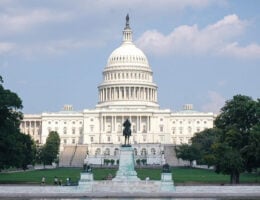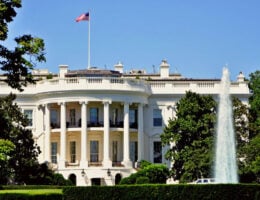The new DOJ FCPA enforcement policy emphasizes US national security and business interests, moving away from solely prosecuting bribery of foreign officials. The focus will be on bribes involving Transnational Criminal Organizations (TCOs), cartels, and those impacting US competitiveness or national security. Routine, locally accepted business practices are deprioritized. The DOJ will exercise discretion to determine if conduct genuinely impacts US interests, leaving other cases to the SEC or foreign regulators. This creates a more nuanced and unpredictable enforcement environment, with clarity expected only as enforcement patterns emerge.
On 12 May 2025 the newly issued Criminal Division White-Collar Enforcement Plan, the Head of the US Department of Justice (DOJ)’s Criminal Division, Matthew R. Galeotti, set out the Department’s priorities for corporate criminal enforcement under the new Administration and issued a number of updated policy documents.
These changes affect the Criminal Division’s Corporate Enforcement and Voluntary Self-Disclosure Policy, its policy on the Selection of Monitors (memorialized in the Memorandum on Selection of Monitors in Criminal Division Matters, and the Whistleblower Awards Pilot Program.
On February 10, 2025, President Donald Trump signed an Executive Order (“Order”) directing a 6-month moratorium on the enforcement of the Foreign Corrupt Practices Act (FCPA), while the Attorney General revises Department of Justice (DOJ) policies and guidelines governing FCPA enforcement. The Order instructs that these changes be made in the interest of promoting US companies’ ability to compete in foreign markets. While the Order introduces uncertainty for the future of FCPA enforcement, companies are advised to stay the course on compliance and exercise caution when considering any shifts in compliance practices and resourcing in the near term.
A recent memorandum from Attorney General Pam Bondi signals a potential shift in the Department of Justice’s FCPA enforcement priorities. According to the memorandum, FCPA enforcement should prioritize foreign bribery linked to Cartels and Transnational Criminal Organizations (TCOs), potentially altering the landscape of white-collar corporate enforcement. While traditional FCPA cases will likely continue, the new directive grants local US Attorneys’ Offices greater latitude in conducting FCPA investigations touching on Cartels and TCOs.
On 4 October 2023, Deputy Attorney General Lisa Monaco of the U.S. Department of Justice announced a new DOJ-wide policy that seeks to provide greater certainty as to the potential benefits to acquirers that uncover criminal conduct at a target company. The DOJ’s Mergers & Acquisitions Safe Harbor Policy for voluntary self-disclosures provides greater certainty to acquirers who self-report within the safe harbor period, fully cooperate with the DOJ in its investigation, and engage in requisite, timely, and appropriate remediation, pay restitution, and disgorge any ill-gotten gains.
Across sectors and industries, from start-ups to multinationals, companies everywhere are talking about their sustainability credentials — and in particular, their intention to reach net-zero. Businesses have recognized that a net-zero pledge can be a powerful public message, in the face of growing pressure to tackle the climate crisis and an expectation that business be part of the solution. But amidst all the rhetoric, how much progress are we really making? Are we on course to reach net-zero by 2050, or are businesses simply jumping on the bandwagon on the road to net nowhere? We surveyed 1,000 business leaders to find out more.
On 15 September 2022, Deputy Attorney General Lisa Monaco issued a memorandum to Department of Justice prosecutors entitled “Further Revisions to Corporate Criminal Enforcement Policies Following Discussions with Corporate Crime Advisory Group”. As has become common in recent years (with a brief intermission under Deputy Attorney General Rod Rosenstein who objected to the practice), such memoranda and other Department pronouncements have come to herald key developments in DOJ policy on corporate criminal enforcement and related practice. These memoranda are therefore closely watched by the defense bar and corporate counsel alike.
The Annual Compliance Conference begins next week and attracts over 6,000 in-house senior legal and compliance professionals from across the world. This leading compliance conference will be held across five weeks from 6 September – 6 October 2022. We will be virtually delivering our cutting-edge insights and guidance on key global compliance, investigations and ethics issues. Our global experts will provide practical insights and analysis on significant developments:
• anti-bribery
• corruption and economic crime
• customs and FTAs
• ESG, supply chain and product compliance
• antitrust and competition
• export controls, sanctions and foreign investment
Click here to view the full agenda and register your interest in joining us virtually at this must attend global compliance conference for senior in-house legal and compliance professionals.
Annual Compliance Conference
Our popular Annual Compliance Conference, which attracts over 6,000 in-house senior legal and compliance professionals from across the world, will be held across five weeks from 6 September – 6 October 2022. We will be virtually delivering our cutting-edge insights and guidance on key global compliance, investigations and ethics issues. Our global experts will provide practical insights and analysis on significant developments across:
– anti-bribery
– corruption and economic crime
– customs and FTAs
– ESG, supply chain and product compliance
– antitrust and competition
– export controls, sanctions and foreign investment
Click https://www.bakermckenzie.com/en/insight/events/2022/10/annual-compliance-conference to register your interest in joining us virtually at this must attend global compliance conference for senior in-house legal and compliance professionals.
Recently, the U.S. Securities and Exchange Commission (“SEC”) Division of Corporation Finance issued a sample letter advising companies on their potential need to disclose direct and indirect impact of Russia’s invasion of Ukraine and the related international response on their operations. Sample letters generally do not create any new legal obligations; instead, they signal the areas of potential scrutiny by the SEC and illustrate the types of risks the SEC may view as material.







